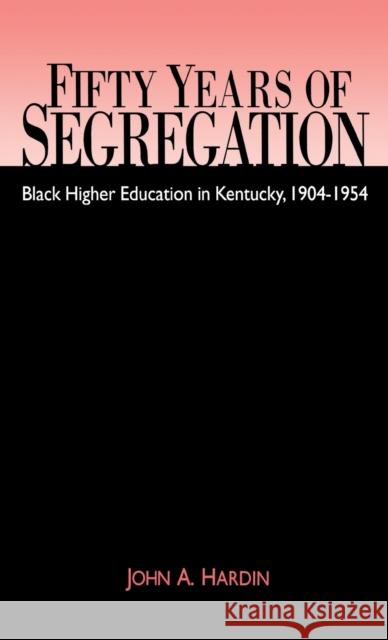Fifty Years of Segregation: Black Higher Education in Kentucky, 1904-1954 » książka
Fifty Years of Segregation: Black Higher Education in Kentucky, 1904-1954
ISBN-13: 9780813120249 / Angielski / Twarda / 1997 / 192 str.
Kentucky was the last state in the South to introduce racially segregated schools and one of the first to break down racial barriers in higher education. The passage of the infamous Day Law in 1904 forced Berea College to exclude 174 students because of their race. Throughout the 1930s and 1940s black faculty remained unable to attend in-state graduate and professional schools. Like black Americans everywhere who fought overseas during World War II, Kentucky's blacks were increasingly dissatisfied with their second-class educational opportunities. In 1948, they financed litigation to end segregation, and the following year Lyman Johnson sued the University of Kentucky for admission to its doctoral program in history. Civil racism indirectly defined the mission of black higher education through scarce fiscal appropriations from state government. It also promoted a dated 19th-century emphasis on agricultrual and vocational education for African Americans. John Hardin reveals how the history of segregated higher education was shaped by the state's inherent, though sometimes subtle, racism.











